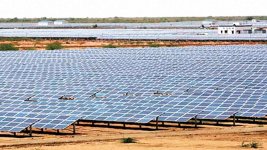bilby
Fair dinkum thinkum
- Joined
- Mar 6, 2007
- Messages
- 40,348
- Gender
- He/Him
- Basic Beliefs
- Strong Atheist
Wind farm with ability to power one million households up and running
I have to marvel at the scale of those projects.Situated 23 kilometers (around 14.3 miles) off the coast of Zeeland, in the southwest of the Netherlands, the 752 megawatt (MW) Borssele 1 & 2 offshore wind farm spans an area of 112 square kilometers. It uses 94 wind turbines from Siemens Gamesa.
In an announcement Friday, Orsted described the facility as the second-largest operating offshore wind farm in the world. The largest, Hornsea One, has a capacity of 1.2 gigawatts (GW) and was also developed by Orsted.
...
A number of major offshore wind projects located in European waters are now in the pipeline. These include the Dogger Bank Wind Farm in Britain, which left the EU in January 2020.
A 50:50 joint venture between SSE Renewables and Equinor, the Dogger Bank facility will have a total capacity of 3.6 GW once completed, making it the largest in the world.
I know right?? The biggest ones are almost as big as a real power plant! (for the ~30% of the time that the wind is actually blowing).

